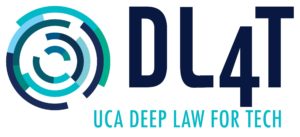Start – 2018 | End – 2024 Duration – 6 ans
The specificity of prosecuting authorities is linked to the public interest at stake in their decision to take legal action. It is important for them to analyse more comprehensively all the data relating to their scope of intervention in order to target the most effective and dissuasive measures.

Subproject chief
Tom van Engers
Research activities
Case study
In the first year of the project, a thorough analysis of one of the identified flagship projects, INDIGO, is planned. This project is currently conducted by the Dutch Immigration Service.Inventories
The Subproject aims to compile an inventory of common practices, and of technological decision support tools used by legal authorities, as well as those that are still under development. A particular emphasis will be placed on how automated decision support tools influence the individuals who are the object of the decisions, and their willingness to accept those decisions.
The second inventory will list examples of best practice of conflict prevention in legal organizations.
Publications of researchers
- Benjamin ALARIE. « Turning Standards into Rules Part 1: Using Machine Learning to Predict Tax Outcomes », (2018) 10-182 DTR.
- Benjamin ALARIE. « Turning Standards into Rules Part 4: Machine Learning and Economic Substance », (2018), 249 DTR 111.
- Benjamin ALARIE, Abdi AIDID, « Predicting Economic Substance Cases with Machine Learning », (2020) Journal of Tax Practice and Procedure.
- David RESTREPO-AMARILES, « From Computational Indicators to Law into Technologies: The Internet of Things, Data Analytics and Encoding in COVID-19 Contact Tracing Apps », International Journal of Law in Context (forthcoming).
- Benjamin ALARIE, « Ahead by a Century: Tim Edgar, Machine-Learning, and the Future of Anti-Avoidance », (2020) 68-2 CTJ 613‑629.
- Benjamin ALARIE, Bettina XUE GRIFFIN et Abdi AIDID, « Using AI to Characterize Financing Between Related Parties », (2020) Tax Notes State 915‑920.
Presentations
- Frank PASCALE, « Web-conférence : New Laws of Robotics: Defending Human Expertise in the Age of AI », HumanIA, 7 décembre 2020.
- Frank Pascale (dir.), « New Laws of Robotics Defending Human Expertise in the Age of AI », Harvard University Press, (2020).
- Cassandra LAROCQUE-RIGNEY, Karl BRANTING, Kevin ASHLEY, Tom VAN ENGERS, « Web conference | AI'S Contribution to the Administration of Justice », programme virtuel du Laboratoire de cyberjustice, 15 juin 2020.
This content has been updated on 15 July 2024 at 14 h 59 min.



